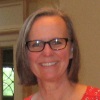What experiences have you had as a MOOC participant?
Participating in a MOOC
MOOC participation is yet another intensely scrutinized aspect of this new instructional delivery method. Critics and supporters alike acknowledge the dropout rate could be one way to measure success in a MOOC; however, proponents argue that this measure may not be focusing on relevant data. Alternate methods of measuring interest and success have begun to provide a new perspective on what MOOCs are attempting to accomplish by examining other factors such as what Doug Clow (2013) called the "the funnel of participation" (para. 1). The varying levels of participation in this panel of interviewees helps to provide a rationale as to why dropout rate may not be the only (or best) measure of MOOC success.
 Jeffrey Grabill: Well, I haven’t taken a MOOC, but we offered one last summer, and we're going to offer another one this summer. Julie Lindquist and I were laughing about what a different sort of teaching experience facilitating a MOOC actually is and in our roles. A team delivers a MOOC, and it can be a fairly large team, particularly the first time through. Julie and I felt very much like what we imagined producers of film or producers of events felt like because we had very limited roles in the day-to-day interactions of the learning experience. But we had pretty significant roles in ensuring the experience got made, [and] the intellectual direction of the experience, [and] we hired everybody. It was like producing an event in many respects, which actually lined up with how we thought of it to begin with. We never thought of the MOOC we offered last summer or the one we're going to do again here starting in June as a class. We always understood it as an experience and as an event. We actually thought about [it] that way from the beginning, so it's crazy that we were surprised by the experience of it.
Jeffrey Grabill: Well, I haven’t taken a MOOC, but we offered one last summer, and we're going to offer another one this summer. Julie Lindquist and I were laughing about what a different sort of teaching experience facilitating a MOOC actually is and in our roles. A team delivers a MOOC, and it can be a fairly large team, particularly the first time through. Julie and I felt very much like what we imagined producers of film or producers of events felt like because we had very limited roles in the day-to-day interactions of the learning experience. But we had pretty significant roles in ensuring the experience got made, [and] the intellectual direction of the experience, [and] we hired everybody. It was like producing an event in many respects, which actually lined up with how we thought of it to begin with. We never thought of the MOOC we offered last summer or the one we're going to do again here starting in June as a class. We always understood it as an experience and as an event. We actually thought about [it] that way from the beginning, so it's crazy that we were surprised by the experience of it.
As I mentioned, I helped Jeff and Julie both plan and kind of do some of the logistics with the writing MOOC they offered at Michigan State last year. I also worked with a few other people who wanted to use Eli* in conjunction with their MOOC. I've served as a technical adviser to people who want to have a peer learning component and felt like whatever platforms they had weren't sufficient, so they were turning to us to provide something they didn't have somewhere else.
*Jeff Grabill, Bill Hart-Davidson, and Mike McLeod are co-inventors of Eli Review, a software service that supports peer learning.
I mean, I've heard of people who—and I won't say the college—but someone almost didn't get tenure because they had done a MOOC. At the behest of their college, they did a MOOC, and then their department almost didn't give them tenure because they had done that. Attitudes are still off the rails about this particular methodology, and I think it's going to take a while for things to settle out as to how these are going to be used in education. As a matter of fact, one of the teachers on the course (this is an amazing person) said, "Never once while I was working on this or teaching this course did I feel like my job was in jeopardy."
Interviewer: Wow.
Pat James: There was a lot of fear in the beginning, and I think that fear leads to disparaging comments about a methodology. You know, when we started using the Internet in the 80s, the early 80s, teachers were saying, "This is going to replace me! They're not going to need me anymore!" [Laughs] And as far as I know, no one has ever been replaced by distance education. As a matter of fact, it's been quite the opposite. I think people have jobs because of distance education. I've never heard of a teacher losing their job because of distance education. [Laughs] Most of those people who said that have retired now from teaching. [Laughs]
And the learners in the course, they're not traditional learners that enter my classroom, necessarily. Most already had Bachelor's or Master's degrees. Most were professionals. And so it could be that the level of facilitation that's needed in a first-year writing classroom with a traditional cohort of students who don't yet have Bachelor's degrees . . . . That’s one set of feedback where the teacher's role in feedback really does need to be more . . . . Obviously, we have more expertise, and we need to help them develop that expertise. In the MOOC, there were a lot of learners who were already quite equipped to give feedback. And yet some people weren't.
They just didn't seem like students to me [laughs]. In fact, they weren't because "students" sort of implies the corollary "teacher." First of all, I didn't feel like a teacher. I felt like someone who was new to instructional technology and suddenly was out there in the public with this thing, and that was weird. I felt like, in terms of my teacherly role of being more present, I wasn't more present. I didn't feel like a teacher in the same way, so I couldn't have them be students. There were literally teachers who enrolled. I think Cindy Selfe and Kay Halasek use the word "writer," which I love that, too. But they're not students. I feel like they're learners, as I am a learner, and I was enrolled in the course, too.


 Kay Halasek: I think I would probably describe my central role in the MOOC as convener, designer, and instructor. I fit sort of all three of those roles. I did convene the group of about seven faculty and graduate students who participated in the MOOC as designers and then instructors. That primary role really came about because we had the Gates Foundation grant funding. We collaboratively drafted and submitted that grant proposal to Gates, and then when we were funded, we began collectively and collaboratively designing the MOOC.
Kay Halasek: I think I would probably describe my central role in the MOOC as convener, designer, and instructor. I fit sort of all three of those roles. I did convene the group of about seven faculty and graduate students who participated in the MOOC as designers and then instructors. That primary role really came about because we had the Gates Foundation grant funding. We collaboratively drafted and submitted that grant proposal to Gates, and then when we were funded, we began collectively and collaboratively designing the MOOC. Bill Hart-Davidson: I've been a student in a couple of different MOOCs and I've even completed one which makes me a rare person, I guess, because most people don't. I completed one on social network analysis which actually involved math homework. That was tricky. I managed to keep up with it, [and] I thought actually I got some pretty interesting stuff out of it. I did one, last summer. I was both a student and a participant observer, really, in the writing MOOC that Jeff [Grabill] and Julie [Lindquist] did. I've also started one and bailed on it. I can't even remember what it was. I maybe just peaked my head in the door and was like, "Yeah, I don’t have time for this." That was at the beginning of the Coursera thing. That's my sort of student experience.
Bill Hart-Davidson: I've been a student in a couple of different MOOCs and I've even completed one which makes me a rare person, I guess, because most people don't. I completed one on social network analysis which actually involved math homework. That was tricky. I managed to keep up with it, [and] I thought actually I got some pretty interesting stuff out of it. I did one, last summer. I was both a student and a participant observer, really, in the writing MOOC that Jeff [Grabill] and Julie [Lindquist] did. I've also started one and bailed on it. I can't even remember what it was. I maybe just peaked my head in the door and was like, "Yeah, I don’t have time for this." That was at the beginning of the Coursera thing. That's my sort of student experience. Pat James: Now, I've been teaching online since 2000, so I have a lot of experience with distance education (DE). I taught online, I was the distance education faculty coordinator, I was working at the state level on all kinds of DE committees and the academic senate and also then became the Dean of Distance Learning at the college, so I have a lot of experience with DE, so it [starting a MOOC] was a real natural fit for me. The culture at Mt. San Jacinto College embraces distance education because we had a lot of professional development around it since 2000, so people are open to it. I think having a culture that's open to alternative methodologies is critical when you're dealing with something like this.
Pat James: Now, I've been teaching online since 2000, so I have a lot of experience with distance education (DE). I taught online, I was the distance education faculty coordinator, I was working at the state level on all kinds of DE committees and the academic senate and also then became the Dean of Distance Learning at the college, so I have a lot of experience with DE, so it [starting a MOOC] was a real natural fit for me. The culture at Mt. San Jacinto College embraces distance education because we had a lot of professional development around it since 2000, so people are open to it. I think having a culture that's open to alternative methodologies is critical when you're dealing with something like this. Steve Krause: So far what I’ve done is the first MOOC that I wrote about a lot was a MOOC last summer called "Listening to World Music." I blogged about that a lot, and the article in the CCCs [College Composition and Communication] was about that (Krause, 2013). I've taught some classes. I taught a class last winter—a graduate class where students actually participated in a MOOC as part of the class. We talked about that kind of experience and then it just came out a couple months ago [when] Charlie Lowe and I co-edited a collection called Invasion of the MOOCs (2014), which we put together in less than a year. We knew that the bleeding edge of that is moving very, very quickly. We worked with a great group of people to come up with a bunch of different essays that were taking different viewpoints on MOOCs and came out with that. It's available for download; it’s been downloaded thousands and thousands of times. And it’s all over Twitter and stuff like that, so that’s cool.
Steve Krause: So far what I’ve done is the first MOOC that I wrote about a lot was a MOOC last summer called "Listening to World Music." I blogged about that a lot, and the article in the CCCs [College Composition and Communication] was about that (Krause, 2013). I've taught some classes. I taught a class last winter—a graduate class where students actually participated in a MOOC as part of the class. We talked about that kind of experience and then it just came out a couple months ago [when] Charlie Lowe and I co-edited a collection called Invasion of the MOOCs (2014), which we put together in less than a year. We knew that the bleeding edge of that is moving very, very quickly. We worked with a great group of people to come up with a bunch of different essays that were taking different viewpoints on MOOCs and came out with that. It's available for download; it’s been downloaded thousands and thousands of times. And it’s all over Twitter and stuff like that, so that’s cool. Denise Comer: Right now what is occupying my thinking about it [the idea of a MOOC] is just really an incredibly enhanced valuing of peer-to-peer interaction and a kind of healthy displacement of me as primary pedagogue in a class. I have carried [that concept] with me into other teaching settings—really thinking about what people can teach each other and what they can learn from these kinds of peer conversations about writing and what I should or shouldn't shoulder responsibility for or try to control or not. You can't control a MOOC [laughs]. So that was hard at first because I am used to feeling, not controlling, but accountable in some way for the way that my classroom functions and what happens to the learning experiences, and that's not possible in a MOOC. And for good reason, too. I have a set of learning objectives for the MOOC, but different learners might be enrolling for very different reasons.
Denise Comer: Right now what is occupying my thinking about it [the idea of a MOOC] is just really an incredibly enhanced valuing of peer-to-peer interaction and a kind of healthy displacement of me as primary pedagogue in a class. I have carried [that concept] with me into other teaching settings—really thinking about what people can teach each other and what they can learn from these kinds of peer conversations about writing and what I should or shouldn't shoulder responsibility for or try to control or not. You can't control a MOOC [laughs]. So that was hard at first because I am used to feeling, not controlling, but accountable in some way for the way that my classroom functions and what happens to the learning experiences, and that's not possible in a MOOC. And for good reason, too. I have a set of learning objectives for the MOOC, but different learners might be enrolling for very different reasons.